It's All Greek to Me - Taking a closer look at Ancient Greece
Introduction | Background Knowledge | Activities | Extensions | Standards
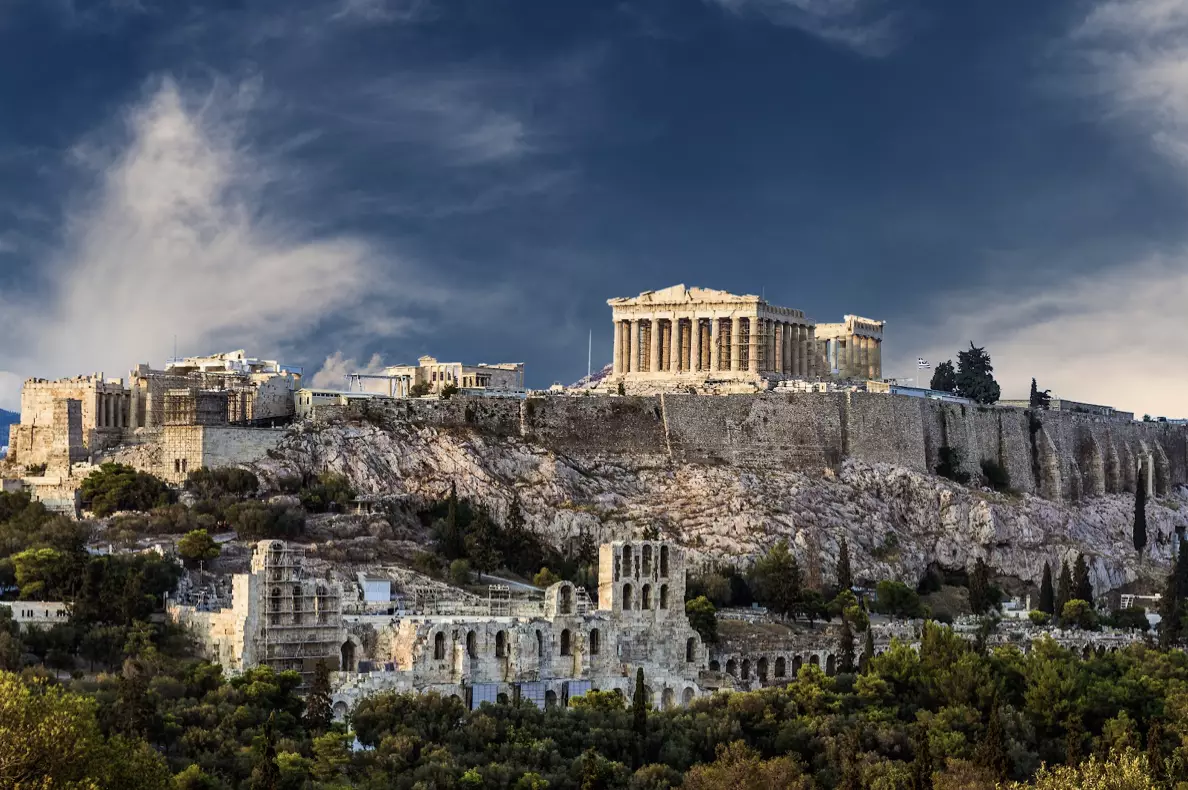
Introduction
Ancient Greece was the seat of knowledge for thousands of years. It was the birthplace of the Olympic games, and Greek Mythology was the basis for the stories of the constellations in every night sky. From the fierce warriors of Sparta and the face that launched a thousand ships, Ancient Greece was the basis for many of the ideals that we know today.
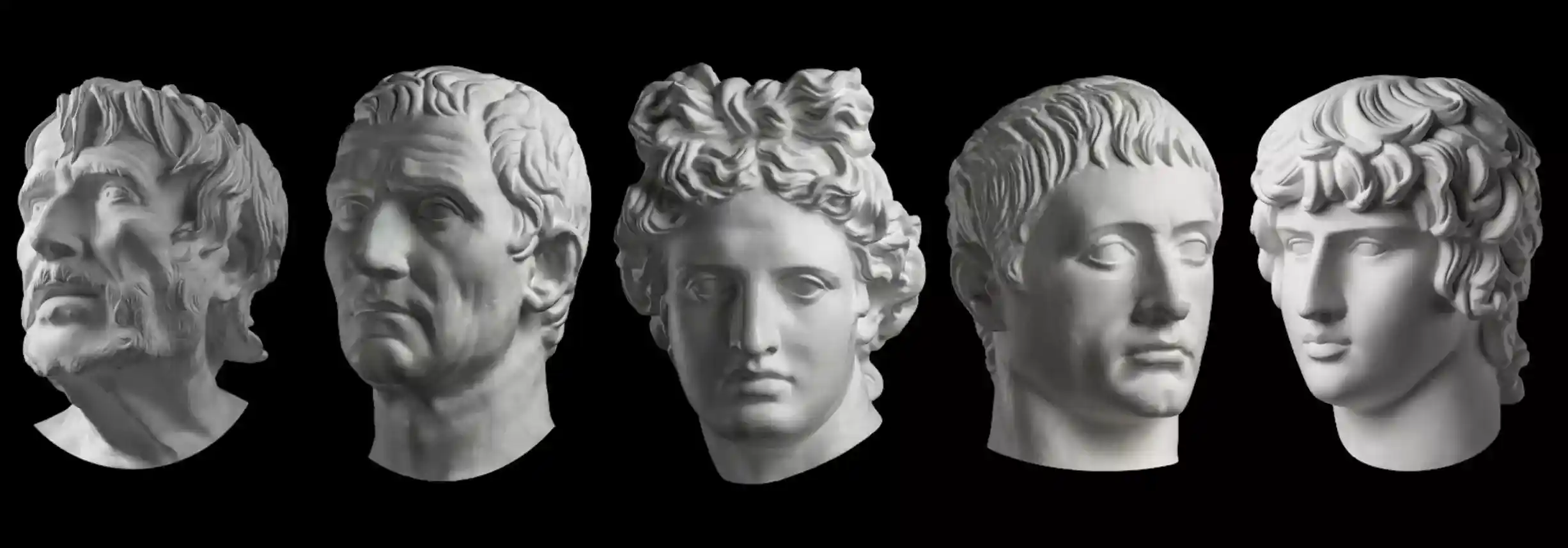
Click the image above to view a video that shows more about Ancient Greece.
Background Knowledge
Ancient Greek civilization began at the end of the Dark Ages when the Mycenaean civilization fell in the 8th century BCE. During this 200 years of settlement and organization, the Ancient Greeks set the foundation of the powerful civilization that would come. This period saw a series of wars and conflicts, but four city-states rose to dominance - Athens, Sparta, Corinth, and Thebes. Each of these city-states had different rules and different leaders. In 510 BCE, Athens and Sparta continued in conflict when Cleisthenes, of Athens suggested a system where all people could participate in governing, regardless of social class. They called this democracy, and its inception calmed the tensions, which launched the Golden Era in Athens.
The Golden Era in Athens is also known as Fifth-century Athens. This era spanned from 480 to 404 BCE. This was a time of great cultural advancement. The legacy of Ancient Greece comes primarily from this era. Architecture was a major focus during this time. The Acropolis in Athens was reconstructed after a fire destroyed it, and it sat in ruins for 30 years. The Temple of Apollo at Delphi, which would be destroyed by an earthquake, was reconstructed as well. Athens also became the mecca for theater. Pericles, the ruler at the time, valued the theater and required the wealthiest citizens to support the theater by caring for the members of the Greek chorus as well as the actors. The Golden Era was also the age of philosophy. The great philosophers of Ancient Greece - Socrates, Plato, and Aristotle - shared their wisdom. A focus on language and oration also was an important aspect of the era.
Classical Greece was an almost two century-long period that ran from 499 BCE until the death of Alexander the Great in 323 BCE. The Greek city-states continued to feud and there were several conflicts. Some city-states would be in times of peace, while others would be in times of war. In 431 BCE, Athens and Sparta began fighting the Peloponnesian War. Both sides agreed to a short-lived peace before conflict broke out again. Sparta emerged victoriously and took control of Ancient Greece. Stretched too thin to maintain control, Sparta succumbed to a 395 BCE attack by Athens, Thebes, and Corinth, which began the Corinthian War. After eight years, the war ended in a stalemate, and Greece returned to Spartan rule. Power continued to change hands until Phillip of Macedonia led the allied Thebes and Athens at the Battle of Chaeronea in 338 BCE. He united the city-states, which joined the Hellenic League. His son, Alexander, came to power in Ancient Greece upon Phillip's death. The individual city states began to move away from independent rule and toward the Hellenistic model.
With the death of Alexander the Great in 323 BCE, the Hellenistic Period of Ancient Greece began. This period lasted until the Romans annexed Greece in 146 BCE, ending Greece's independent rule. The city-states separated into two factions - the Achaean League (composed of Thebes, Corinth, and Argos) and the Aetolian League (composed of Sparta and Athens). These factions were often at war with each other and with the remnants of Alexander the Great's empire. Greece was embattled in war with Rome beginning in the late 3rd century. These conflicts continued until the Aetolian League was conquered and absorbed by the Roman Empire in 146 BCE. This ended Greek independence and the Ancient Greek civilization.
The legacy of Ancient Greece is seeded in its cultural developments. The Pythagorean theorem and Pi emerged and remain relevant in modern times in the math field. In sports, the Olympics began in Ancient Greece. Advances in architecture can be seen in modern-day Washington DC in the columns on the US Supreme Court building as well as the design of the US Capitol. The idea of democracy was born in Ancient Greece. The Greeks also created realistic life-like sculptures that Renaissance artists copied. Finally, the religious structure of the Ancient Greeks was copied by the Romans and has permeated literature into modern times.
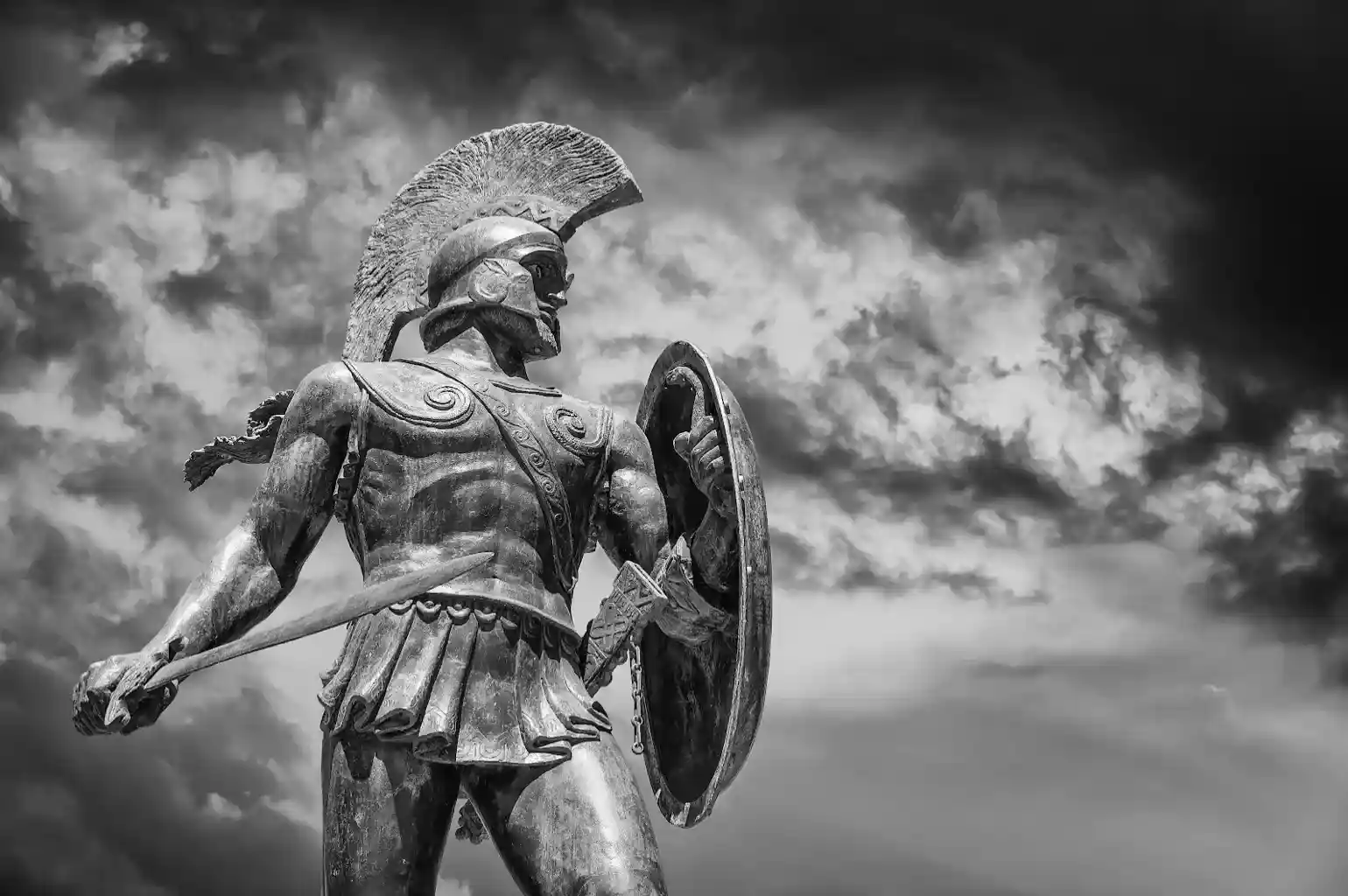
ACTIVITIES
Greek Mythology
-
Echo, Echo: Reverso Poems about Greek Mythology by Marilyn Singer (ISBN 9781338188271)
- Learn about the Olympians by reading the same poem from the top to the bottom and the bottom to the top.
-
The Lightning Thief by Rick Riordan (ISBN 9780786838653)
- This is the first book in a five-book series about Percy Jackson, son of Poseidon. Zeus accuses Percy of stealing his lightning bolt and gives him two weeks to return it before starting a war with Poseidon. Percy and his friends have to find the entrance to the Underworld and stop the war.
- Rick Riordan has created Teachers Guides for The Lightning Thief and the other books in the series.
- Write myths about your school. Learn more from this website.
- For advanced upper elementary and middle school, Edsitement! from the National Endowment for the Humanities has a unit of lesson plans titled "It Came From Greek Mythology."
- Check out these ideas from Storyboard That! (Consider using Canva's Comic Strip Templates (TeachersFirst review) if you do not have a paid subscription to Storyboard That!)
The Olympics
- Hour of the Olympics by Mary Pope Osborne (ISBN 9780679890621) and its companion guide, Ancient Greece and the Olympics by Mary Pope Osborne (ISBN 9780375823787)
- Learn about the original Olympians at Edsitement! from the National Endowment for the Humanities. This lesson plan encourages students to research the athletes and conduct "interviews" of each of them. For a digital option, check out FlexClip (TeachersFirst review) or use your favorite video maker to record the interviews.
- Learn more about the Ancient Olympics from the International Olympic Committee. Compare the original games to the modern Olympics using a Venn diagram (TeachersFirst review)
- Examine artifacts focusing on the Olympics from the Met. Use this resource from the British Museum to provide information to support the artifacts.
- TeachersFirst has curated over 15 general resources for the Olympics.
- Mr. Donn's website provides information about the Olympics.
- Partner with the school's Physical Education teacher to pair math and physical education to see How Students Measure Up in Olympic events.
- Host a class, grade level, or whole school Olympic games with games that are fun to silly to serious. 10 Fun Olympic Game Ideas for Kids has some wonderful ideas that can be further used as STEAM activities as students assess their successes and seek additional designs for greater success. Students could also create games focusing on teamwork of small groups.
Daily Life and Culture
- Read Ancient Greece Inside Out by John Malam (ISBN 9780778728764)
- Mr. Donn's website has excellent, engaging activities to get students excited about Ancient Greece.
- Get students moving and collaborating with Ancient Greece learning stations.
- Ducksters (TeachersFirst review) is always a great resource. It provides great information, has a recorded option, and provides a 10 question quiz to check for understanding.
- A meander (or meandros) is an artistic border that is created from a continuous line. This decoration was an important symbol of Ancient Greece, its continuous line possibly representing unity. The meander began to appear on vases and in architecture starting in 900 - 700 BCE. Students can create their own meander as a math/art activity. This style guide provides an explanation for creating colorful meanders. Explore digitally created meanders here and vary the size, design, and style. Consider using GooseChase (TeachersFirst review) for an online meander scavenger hunt, locating as many different types of items as possible in a given time frame.
Videos
- Learn Bright's Ancient Greece for Kids
- 5 Things You Should Know About Ancient Greece by Smile and Learn
- Ancient Greece by Happy Learning English
- Ancient Greece in 18 Minutes by Arzamas
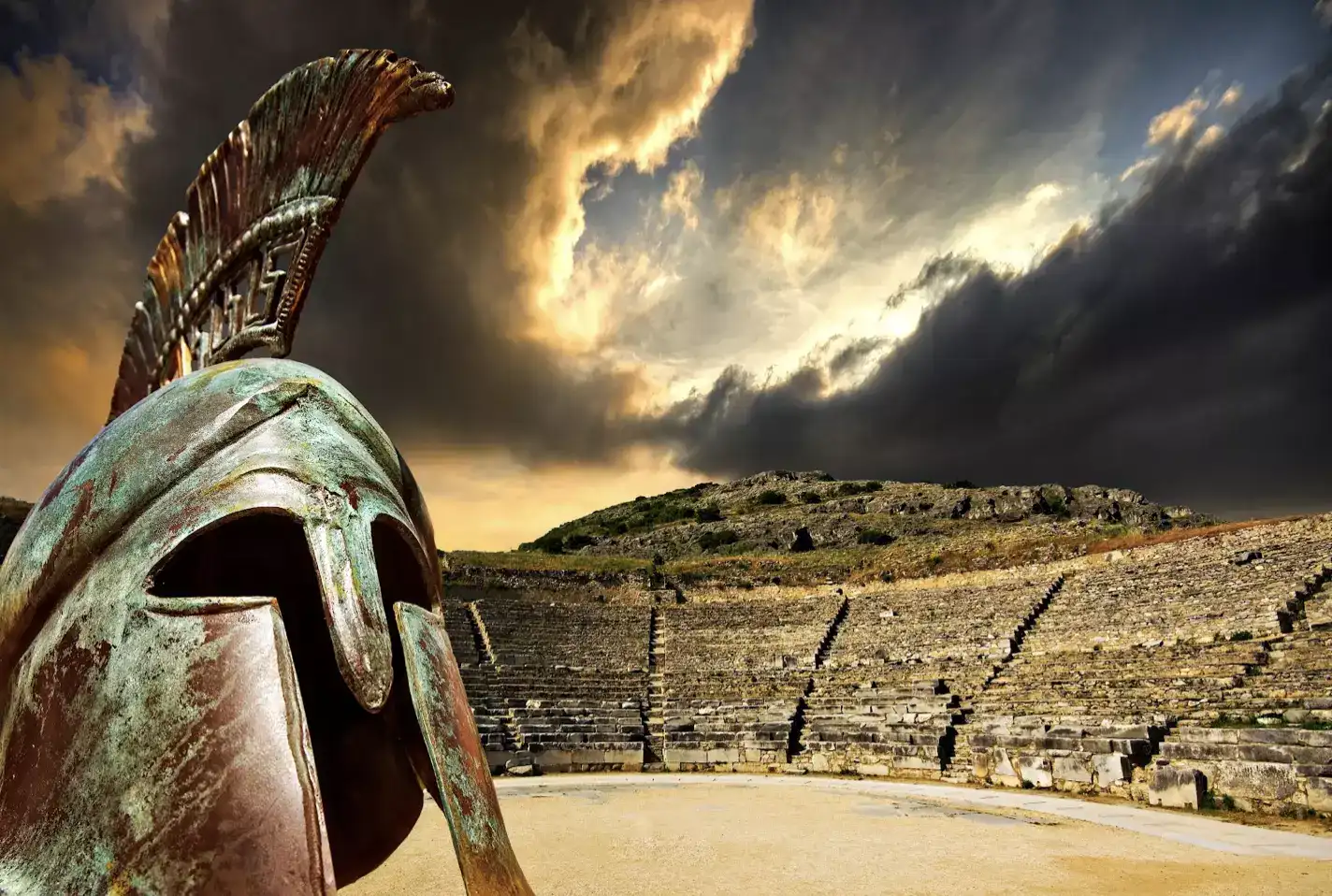
EXTENSIONS
Nectar of the Gods
- Ancient Greece religion was based on polytheism, a belief in multiple gods and goddesses. Mount Olympus was the home of the gods, whom the powerful Zeus led. There are the 12 major gods that have been considered the 12 Olympians. When Ancient Greece fell to Rome, Roman culture adopted the polytheism found in Greece and inherited many of the same elements.
- Visit the J. Paul Getty Museum and use the education resources to explore Greek and Roman Mythology in Art. To visit virtually, search the collection to find the pieces mentioned in the resources.
- Use this comparison chart as a reference.
-
Students can research the Greek and Roman gods and write a story about what would happen if these gods met one another in the present day.
- Technology Approach: Use Canva (TeachersFirst review) to create a comic strip to tell the story.
- Non-technology Approach: Print comic strip templates from Canva.
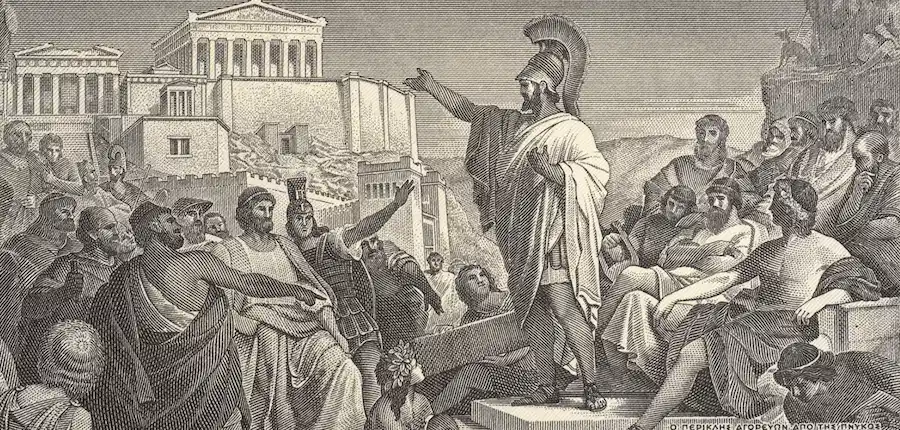
CORRELATION TO STANDARDS
-
AASL National School Library Standards
- Inquire Shared Foundation, Think Domain - Learners display curiosity and initiative by: 1. Formulating questions about a personal interest or a curricular topic. 2. Recalling prior and background knowledge as context for new meaning
- Inquire Shared Foundation, Grow Domain - Learners participate in an ongoing inquiry-based process by: 1. Continually seeking knowledge
- Include Shared Foundation, Create Domain - Learners adjust their awareness of the global learning community by: 2. Evaluating a variety of perspectives during learning activities
- Include Shared Foundation, Grow Domain - Learners demonstrate empathy and equity in knowledge building within the global learning community by: 2. Demonstrating interest in other perspectives during learning activities
- Curate Shared Foundation, Create Domain - Learners gather information appropriate to the task by: 2. Collecting information representing diverse perspectives
- Explore Shared Foundation, Think Domain - Learners develop and satisfy personal curiosity by: 1. Reading widely and deeply in multiple formats and write and create for a variety of purposes. 2. Reflecting and questioning assumptions and possible misconceptions.
- Explore Shared Foundation, Share Domain - Learners engage with the learning community by: 1. Expressing curiosity about a topic of personal interest or curricular relevance
- ISTE Standards for Students
- Knowledge Constructor - 3d. Students build knowledge by actively exploring real-world issues and problems, developing ideas and theories and pursuing answers and solutions.
